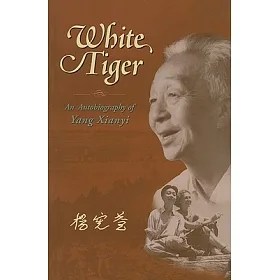 Yang Xianyi (1915-2009) was a translator, poet, and classicist. He is well known for introducing Chinese classics into the Western world by translating them into English with his Sinologist wife, Gladys B. Tayler. But he also contributed to introducing Western classics by translating them into Chinese.
Yang Xianyi (1915-2009) was a translator, poet, and classicist. He is well known for introducing Chinese classics into the Western world by translating them into English with his Sinologist wife, Gladys B. Tayler. But he also contributed to introducing Western classics by translating them into Chinese.
Born in a scholar-gentry family in Tianjin, Yang was privileged to attend an English mission school at Foreign Concession in Tianjin, where he learnt English and Western literature. He was fascinated by Greco-Roman Classics which he read in English. To further pursue his interests in Greco-Roman Classics, Yang went to the United Kingdom. Eventually, he was admitted to Merton College, Oxford, where he studied Classics, Middle French and English Literature.
He returned to China in 1940 and began his teaching at Chongqing University as an associate professor. He mainly taught English at the universities while working under the National Institute for Compilation and Translation during the Sino-Japanese War. He recalled his experiences in the institute to keep the intelligentsia busy from criticising the government.[1] After the war, he went to Nanjing, the capital of the Republic of China, where he taught English and Byzantine Studies. He worked on comparative studies between Byzantine and Chinese history. In 1953, Yang transferred to the Foreign Language Press, mostly working on English translations of Chinese literature. He also occasionally translated English literature and Greco-Roman classics into Chinese. Most of his translations of Roman literature are the first version and are still being published recently. For example, his Chinese translations of Virgil’s Georgics and Eclogues in 1957 are still being read today. Other translated works include Birds and Peace of Aristophanes (1959); Homer’s Odyssey (1979); and plays of Plautus (1985). His translation style is described to have retained the metres of the original poetry while in the form of prose. Yang imitated the iambic pentameter in Chinese by using the heroic couplets in his translation of Virgil’s Eclogues.[2]
 Although not shown in his works, Yang was politically aware and active throughout his academic career. During his years in the United Kingdom, he actively engaged in political activities. He led several student activities such as publishing newspapers which circulated among the Chinese communities in London, updating the situations of the Sino-Japanese war and bolstering anti-colonial sentiments among the Chinese diaspora in the United Kingdom. He contacted Chinese students in Paris who were given support from the Chinese Communist Party.
Although not shown in his works, Yang was politically aware and active throughout his academic career. During his years in the United Kingdom, he actively engaged in political activities. He led several student activities such as publishing newspapers which circulated among the Chinese communities in London, updating the situations of the Sino-Japanese war and bolstering anti-colonial sentiments among the Chinese diaspora in the United Kingdom. He contacted Chinese students in Paris who were given support from the Chinese Communist Party.
His political activity continued after he returned to China. In 1946, with his colleagues at the National Institute for Compilation and Translation, Yang participated in the underground activity in favour of the Communist Party to overthrow the oppressive rule of the Nationalist Party of China (KMT) (Gittings, 2009; Yang, 2002).[3]
His Byzantine lectures at the National Central University (currently Nanjing University) were popular among students where in these lectures, he referred to the corruption and chaos of the Byzantine Empire to the KMT-led Republic of China. The lectures were given until the end of 1948 when the students of NCU went on a school strike.[4]
During the Cultural Revolution, he was jailed on a charge of espionage for four years. Yang was not fully reinstated until the death of Mao Zedong and the fall of the Gang of the Four.[5] During the 1980s, encouraged by the mood of political reforms, Yang joined the Chinese Communist Party. However, after the incidents in Tiananmen on the fourth of June, 1989, Yang denounced the CCP and left the Party.
![]() This profile was written by Kevin Lee.
This profile was written by Kevin Lee.
[1] Yang, X. (2002) White Tiger: An Autobiography of Yang Xianyi.
[2] Liu, J. (2016) “Translating Classical Latin Poetry: An Interview with Wang Huansheng.” The World Historical Review, 273-294.
[3] Gittings, J. (2009) “Yang Xianyi Obituary: Distinguished Translator of Chinese Classics Jailed During the Cultural Revolution” The Guardian. Retrieved 14 of April 2023. See also, Yang, X. (2002).
[4] Yang, X. (2002) White Tiger: An Autobiography of Yang Xianyi.
[5] Gittings, J. (2009).



